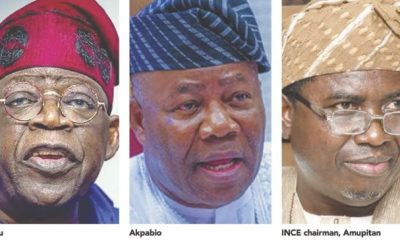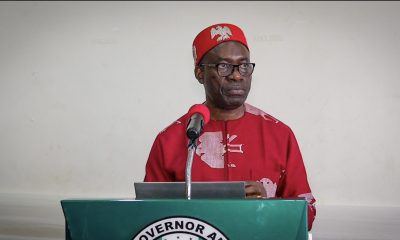As Nigeria’s Tax Reform Bills, which include a controversial proposal for Value Added Tax (VAT) derivation based on consumption, continue to generate debate, legal practitioners have weighed in with their perspectives and recommendations.
The bills, which were crafted by a team led by Mr. Taiwo Oyedele, Chairman of the Presidential Fiscal Policy and Tax Reforms Committee, aim to overhaul the nation’s VAT system and ensure a fairer distribution of resources to states.
At the heart of the reform is Oyedele’s critique of the current VAT distribution model, which allocates VAT revenues based on where the tax is remitted rather than where goods are consumed.
He argues that this system is unjust, particularly for states with high consumption but low VAT remittance.
In his view, the fiscal reform agenda is designed to redirect resources to Nigeria’s state and local governments, which he believes will lead to more effective governance and empower Nigerians at the grassroots level.
However, the reform has sparked significant resistance from the Northern Governors’ Forum and other regional stakeholders, especially regarding the proposed VAT distribution based on consumption.
Many Northern leaders, including traditional rulers and lawmakers, have expressed concerns about how the new formula could disadvantage their region.
READ ALSO: Nigeria to end private consultants in revenue collection, focus shifts to digital systems
These concerns reflect a deeper apprehension about shifting revenue-sharing arrangements that have traditionally been based on derivation principles, such as those used in the oil sector.
Ahmed Raji, SAN, suggested a potential solution by emphasizing that VAT, being a consumption tax, should be handled by individual states rather than the federal government.
He noted that VAT, not being specifically mentioned in the 1999 Constitution’s exclusive list, could be decentralized to allow states to manage their own VAT collections, particularly for transactions occurring within their borders.
Raji argued that states should be able to directly collect VAT from businesses operating within their jurisdictions, without having to remit all collections to the federal government.
He drew parallels to the U.S. tax system, where each state manages its own sales tax laws. “This system would foster healthy competition, with states striving for optimal tax regimes and systems,” he said, adding that proper public sensitization would be critical to ensuring the public understood the potential benefits of this approach.
Further, Raji recommended that the federal government engage more with state governors and stakeholders, urging constructive dialogue to address concerns and clarify the reform’s objectives.
He stressed that rather than dismissing the bills outright, both the Federal Inland Revenue Service (FIRS) and the Northern Governors’ Forum should collaborate to refine the proposals through dialogue, town hall meetings, and the exchange of ideas.
READ ALSO: Ndume renews call for withdrawal of tax reforms bill
Chief Rafiu Oyeyemi Balogun, SAN, acknowledged that the contentious nature of the proposed bills was not surprising given Nigeria’s diverse tribes, religions, and regional interests.
He warned against outright rejection of the bill, suggesting that such an approach could stifle progress in tax administration and governance. He encouraged the Northern Governors’ Forum to form a team of experts to review the bills, propose necessary amendments, and present a comprehensive argument to the National Assembly.
Balogun also pointed out that if the issue of VAT distribution based on derivation was a key point of contention, it could be addressed separately from the broader tax reform.
He recommended that stakeholders thoroughly study the bill, propose modifications, and ensure that their concerns were adequately represented in public hearings.
In contrast, Dr. Olisa Agbakoba, SAN, expressed support for the tax reform bill, particularly its potential to boost revenue generation from corporate entities and higher-income groups.
Agbakoba recognized the valid concerns from Northern Nigeria but also noted that the country’s revenue-sharing system has long been flawed.
He argued that aligning the new VAT formula with oil revenue sharing principles might not be feasible, suggesting instead that the decentralization of revenue collection to states was a more effective long-term solution.
He asserted that only through decentralization could the country overcome its dependence on shared revenue and create a more sustainable economic model. “Consumption tax should go to the states where the revenue is generated,” he said, highlighting the importance of addressing Nigeria’s governance structure to ensure equitable revenue distribution.

 Comments and Issues1 week ago
Comments and Issues1 week ago
 Comments and Issues1 week ago
Comments and Issues1 week ago
 Comments and Issues7 days ago
Comments and Issues7 days ago
 Health6 days ago
Health6 days ago
 Comments and Issues7 days ago
Comments and Issues7 days ago
 Education7 days ago
Education7 days ago
 News3 days ago
News3 days ago
 Aviation6 days ago
Aviation6 days ago

